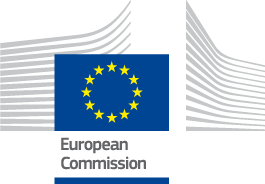

Good Practice Project
In recent years Portuguese octopus has raised great interest on international markets such as Japan and Korea. Companies from these Asian countries are interested in purchasing live octopus, needed for traditional delicacies such as Sannakji and Ikizukuri. In order to establish whether it is possible to export large quantities of live octopus over long distances research was needed. The Aquaculture Research Station of the Portuguese Institute for the Ocean and Atmosphere (IPMA-EPPO), based in Olhao in the Algarve decided, with a number of partners such as the association ARMALGARVE Octopus, to research the conditions under which such transport would be possible while meeting international buyers’ requirements and animal welfare standards.
Together they designed a series of experiments to evaluate survival, animal welfare and water quality through transport simulations conducted with different densities of octopuses. The experiments were conducted according to the European guidelines on protection of animals used for scientific purposes (2010/63/EU).
The tests revealed that water quality remained within normal limits, but an increase of ammonia (nitrogen compound resulting from the metabolism of excretion) was observed. However, despite the significant increase of some metabolites, the survival rate was 100% in all trials and the octopus had a rapid and complete recovery within a few hours of the end of the experiments.
This project has identified the operational needs for the transport of live octopus and pointed to the need for creating infrastructure, such as refrigerated tanks, to support the activity. The publication of the study’s results prompted interest from several companies to set up transport systems for the export of live octopus.
The capture of octopus in Portugal has undergone a series of challenges in recent last years due to an increase in production costs and a stagnation of sales prices. The possibility of exporting this cephalopod to the Asian market is viewed with great enthusiasm by fishermen and ship-owners.
The development of practical solutions for the transport of live octopus for commercial may contribute to the commercialisation of an important fisheries resource, present in a number of FLAG areas. Certain lessons may also be applied to other marine resources of growing international interest, such as echinoderms and other molluscs.
This project demonstrates the importance of involving stakeholders with the scientific and technological skills to innovate within the fisheries sector. Indeed, the project helps address various problems associated with the catch and marketing of octopus and the potential for increased revenue from exports could improve the socio-economic situation in certain FLAG areas as octopus fishing is generally carried out by small-scale family fishing companies.
| Total project cost | €81 207,32 |
|---|---|
| FLAG grant |
€81 207,32
|
| Timeframe of implementation | From Jan 2015 to Dec 2015 |
|---|---|
| Sea Basins |
|
| Type of area |
|
| Theme |